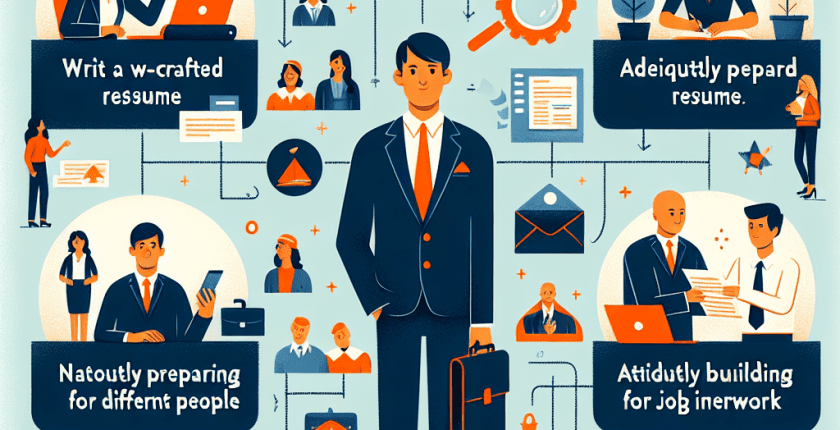How to Find a Good Job: A Practical Guide
Here’s the translated text in English, preserving the HTML tags:
A typical situation: you are actively looking for a job, browsing vacancies, even attending interviews, but the “dream job” still seems unreachable. However, with the right attitude and determination, the dream job can become a reality. So how do you take control of the situation and achieve the desired outcome? Let’s break it down.
We often hear from you that it’s not easy to find a good job. Many believe that employers only look for uninitiative employees. But despite these difficulties, there are many ways to find a decent position, and we are ready to help you with that.
Where to start: key questions
Start by asking yourself the following questions:
- What kind of job do I really want?
- What kind of job am I willing to take?
- Which jobs will I never take?
- What kind of relationship do I want to build with my superiors?
- Do I need the opportunity to advance in my career?
These questions are just the basics to consider before you start looking for a suitable job. For instance, if you want to work for a company that offers career advancement, answering the question about career prospects can help you filter out jobs that do not offer such opportunities.
Why these questions are important
Answering these questions helps you immediately discard unnecessary offers. For example, if someone dreams of becoming an assistant finance director, but is willing to start as an auditor and does not agree to “descend” to an intern level, they should not look at vacancies in sales or production.
If you do not care about your boss’s leadership style, you can skip jobs that say they “value individuality and listen to all.” The same goes for growth prospects: if you expect to be promoted, look for it in the job description. If there’s no such clause, you’ll have to accept what’s offered if it suits you.
So do not waste your time on something that doesn’t fit you. There are many job vacancies in the job market, and of course, some will not meet your criteria. But that’s alright.
CV: why you need a super CV
Or rather, not so much why, but for whom. First and foremost, for yourself. When you write your CV honestly and in detail, it helps you see yourself from the outside, identify your strengths, and understand which skills could be improved. Craft a CV, go through it again, and analyze it: what can be improved, what can be removed, and what can be added.
Moreover, your CV is your only chance to interest the recruiter. Yes, indeed, your job is to interest them. How else is the recruiter supposed to discover that you are a talented professional who can be a great asset to the company? You know your own merits, but the recruiter does not. Therefore, try to describe your skills and experiences as thoroughly as possible on a few pages in your CV and cover letter. Take this chance if you want to secure the position you desire.
Preparation for the interview: why it’s important
Let’s be honest, sometimes the interview questions might seem tough or unexpected, and it’s important to be prepared to answer them confidently. You might be asked about your experience in a specific area or why you chose this particular company. Such questions allow the recruiter to better understand your motives and assess whether you fit the position.
All questions will not be easy. Some may seem silly, personal, or intrusive to you, but there is a reason hidden in each of them. Therefore, it’s important to be prepared for all questions so that you don’t miss out on opportunities. We all get confused sometimes in a stressful situation, and we might not respond the way we would like during an interview. So why regret it later when you can prepare and answer correctly right away?
Here are some useful articles that help you prepare and give confident answers to most of the recruiter’s questions:
- Answering the recruiter’s question “Why do you want to work for us?”
- Answering the recruiter’s question: “What annoys you about the job?”
- How to answer a question about books
- Answering the recruiter’s question: “What are you most proud of?”
- Answering the recruiter’s question “Why should we hire you?”
- How to answer the question “Where do you see yourself in 5 years?”
- How to talk about your strengths and weaknesses in an interview.
The most important of all: do you need the job?
If you really need a job, you should be prepared to work hard to find a good place. And to get it, you have to go through all the steps: from writing your CV to passing the interview.
At Onskemal, you will find jobs that meet all requirements. But it’s essential that your knowledge and experience meet the employer’s expectations. Then there will be productive cooperation leading to successful and mutually beneficial work.

